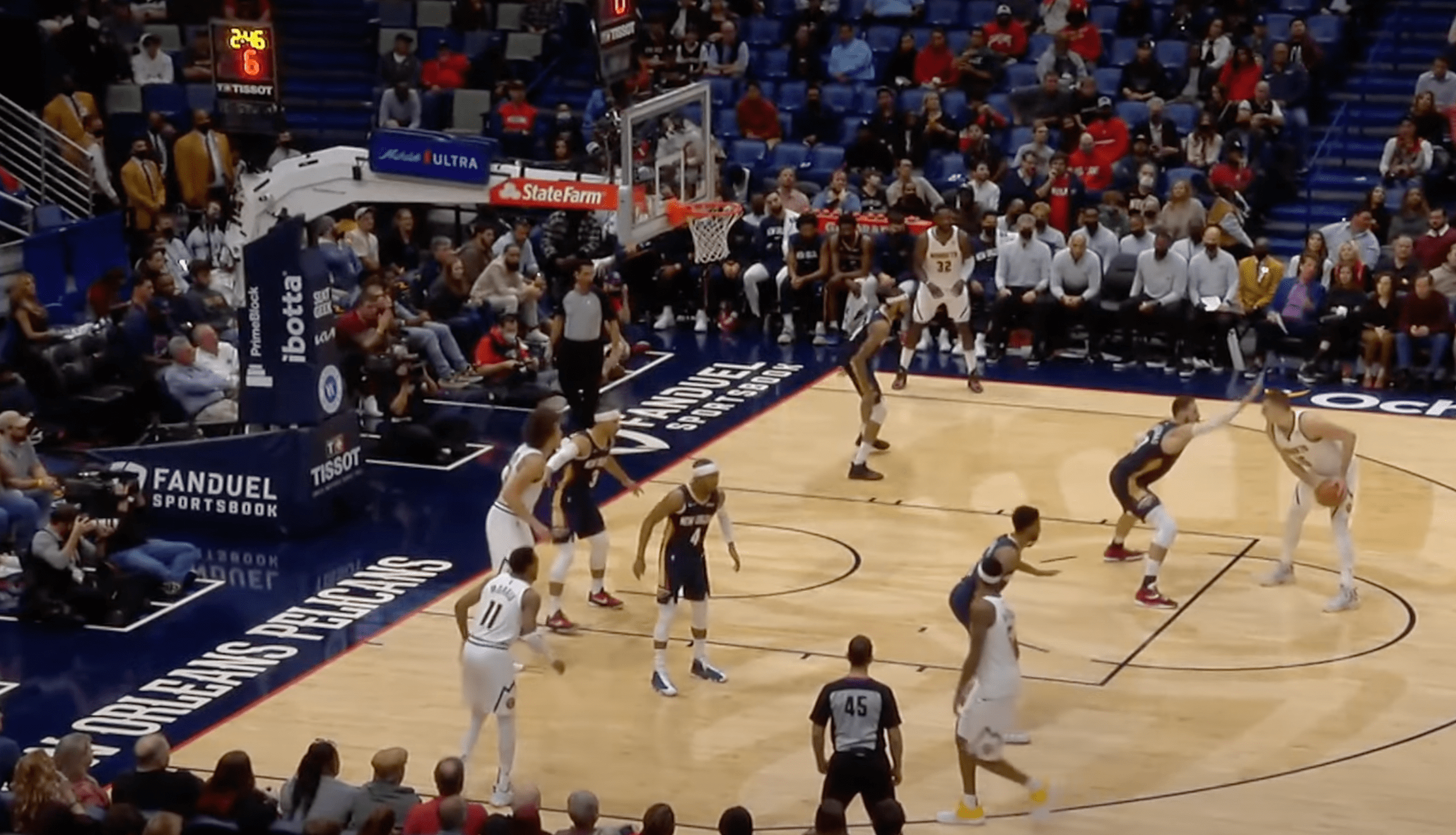The Denver Nuggets are not exactly a great team right now, something that can be understood by anyone who can see their 12-12 record and remember that both Jamal Murray and Michael Porter Jr. are injured. They still have reigning MVP Nikola Jokic, of course, which makes them a dangerous opponent on any given night, but that makes the plan for beating them more clear: Stop Jokic, and you stop the Nuggets.
Obviously the "stopping Jokic" part of that equation is much easier said than done. Try to stop him from scoring, and he'll spend the game weaving gorgeous passes that find open shooters and cutters. Play him straight up, and he'll use his frankly absurd combination of strength, dexterity, and shooting touch to bury you. There are no easy answers.
There are however specific games, or even moments within games, when a clearer answer for how to defend Jokic might emerge. For example, if Jokic were to go 8-for-8 from the field in the first half, you might decide, just for variety's sake, to start the second half double-teaming him and force someone else on the Nuggets' roster to score points. Maybe, if you found yourself late in the fourth quarter of a close game, one which Jokic seemed determined to take over and win all by himself, you might consider doing something other than asking Jonas Valanciunas to guard Jokic 1-on-1, possession after possession.
These are the scenarios Pelicans head coach Willie Green found himself in Wednesday night, and yet at no point did he ever give his overmatched big man some help or relief. The Nuggets beat the Pelicans in overtime, 120-114, and they did so because Jokic was allowed to build a torture chamber on the court, throw Valanciunas into it, and slam the door. Jokic finished the game with 39 points, 11 rebounds, and 11 assists, but when he re-entered the game with 6:14 left to play in the fourth quarter, with the Nuggets down 91-90, he only had 22 points. From that point to the end of overtime, Jokic went 7-of-10 from the field and never really saw more than one guy in his way.
I would like to draw your attention to the last play in that sequence, at the 6:10 mark, which begins with Jokic receiving the ball in the corner, pinned against the sideline, with his back to the basket. If there was ever a moment to double-team a league MVP in the middle of a hot shooting night and force him to give up the ball, it was that one. And yet the Pelicans just stood there ... and watched ... and watched some more ... as Jokic backed Valanciunas down, bullied him all the way to the basket, and scored an easy layup.
After the game, a reporter asked Green what exactly was behind his decision to play Jokic straight up all night. "Yeah, he's a tough cover," Green said. "No matter what you do, guys like him, when they make their mind up, they can score. Our game plan was to stay home with a lot of their guys, and make him have to score."
It's funny to hear a coach say something like that today, in 2021, about Nikola Jokic. There was certainly a time earlier in his career when Jokic could credibly be described as a "reluctant scorer." He used to be one of those guys who would much rather orchestrate possessions than finish them, who seemed to take more pleasure from notching an assist than getting a bucket. But anyone who has watched a single Nuggets playoff game should have long ago been disabused of the notion that Jokic doesn't relish taking big shots late in games. I can't help but wonder if Green forgot to renew his cable subscription the last few seasons.
Even Jokic, a guy who goes through great pains to portray himself as anything other than a fearsome competitor when talking to the press, can no longer go through the I'm not a natural scorer routine with a straight face. When asked after the game about his thought process during the fourth quarter and overtime takeover, Jokic told reporters, "To be honest I don't want to do it, but they made me do it. Coach is running plays for me and I'm like—I'm joking."






